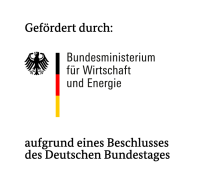PROPER HYBRID MODELS FOR SMARTER VEHICLES
The vehicle of the future is “smart”. It is expected that a vehicle can react flexible on changes of its environment and make decisions independently in order to optimally adapt to changing boundary conditions. This requires a high degree of "self-awareness", i.e. the ability to predict the effects of its own behavior in interaction with the environment. Thus, creating such models of vehicle and environment quickly, cost-effectively and in consideration of fidelity and performance is a key competence. Classic model-based approaches are often associated with high development costs. Advances in artificial intelligence open up new options, but are data-intensive and involve other risks. In this project, hybrid (data and physics-based) approaches are to be evaluated in concrete applications in order to be able to generate scalable “proper models” in a data-efficient manner using existing physical knowledge. In future, this will make it possible to develop innovative product properties in a significantly shorter time and to implement them in vehicles.

In this project, XRG provides a physical vehicle cabin model from which a real-time capable model is to be derived. The accelerated model offers a wide range of possible uses in HiL applications and enables the relevant model information to be transferred to control hardware. At the same time, it opens up the possibility of significantly accelerating conceptual optimization. XRG will develop methods with its project partners and then implement them as a prototype extension for the XRG software SCORE. The developed routines form the basis for the final demonstration of the creation of a proper model taking into account several different tool chains.
Partner
The following german institutions are partnering in this joined project:
- Robert Bosch GmbH, Stuttgart,
- Universität Augsburg, Augsburg,
- Technische Universität Braunschweig, Braunschweig,
- Fachhochschule Bielefeld, Bielefeld,
- TLK-Thermo GmbH, Braunschweig,
- ESI ITI GmbH, Dresden,
- LTX Simulation GmbH, München,
- Modelon Deutschland GmbH, Hamburg.
Research Funding
The research project PHyMoS is supported by the Federal Ministry of Economic Affairs and Energy (number 19I20022F) and runs from March 2021 to February 2024.
